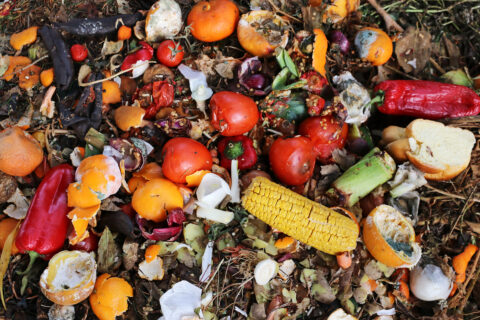Food Basket
5 New Agritech Start-Ups In Africa
Agriculture is one of Africa’s largest and most vital sectors, providing not only food for its enormous population and others outside its borders, but also acting as an economic lifeline for many African countries that are rich in agricultural resources.
According to a 2016 report by the Brookings Institution, a non-profit organisation, farming constitutes up to 60% of all jobs on the continent. The World Bank projects that agriculture and agribusiness in Africa will grow to be a $1-trillion industry on the continent by 2030.
However, the sector is facing major threats that have the potential to cripple whole economies and detrimentally affect the lives of both humans and animals.
Dry and hot conditions, floods, hurricanes, an exploding population and depressed economies are the biggest challenges the sector faces, and it’s struggling to overcome them.
While governments and experts put their heads together to try to find sustainable solutions, agritech companies are already finding answers to a number of problems.
The following are examples of the kinds of innovations being developed by Africans for Africans in different parts of the continent. These solutions cater to each region’s specific challenges and are being offered to their markets.
Nigeria: Fresh Direct
Fresh Direct Produce and Agro-Allied Services is a social agritech enterprise with an innovative approach to sustainable agriculture, in an era when many parts of the world, including densely-populated Nigeria, are faced with environmental and spatial challenges.
Headquartered in Nigeria’s capital, Abuja, the company was founded by epidemiologist and entrepreneur Angel Adelaja.
Instead of using farmland some distance outside the city, Fresh Direct turned to repurposing old shipping containers to grow crops using hydroponics and vertical planting. This allows farming to happen right in the heart of Nigeria’s urban areas, which have been battling with a population that is growing at an alarmingly fast pace.
Farming in shipping containers means significantly reduced costs, consideration for the environment and cutting down on the often-significant distances between farms and marketplaces or consumers.
Fresh Direct has since expanded and now has an integrated farm estate in Osun state, focusing on tomatoes, peppers, cucumbers, fish, chicken and goat farming, with packaging and processing facilities directly on site.
Kenya: iProcure
Kenya’s iProcure, founded by Stefano Carcoforo, runs the largest supply chain platform in Africa. It connects small-scale farmers to manufacturers of agricultural inputs such as animal feed, fertilisers and permitted plant protection products for use in organic farming. Farmers buy these supplies using mobile vouchers, and also get discounts between 10% and 20% for doing so through iProcure.
The start-up also provides business intelligence and data-driven stock management across the supply chains so farmers can analyse their market share and real-time critical sales data, growing sales and product performance.
iProcure also gives farmers access to market research information, allowing them to gain insight into consumer needs and trends.
Ghana: AgroCenta
Francis Obirikorang and Michael Ocansey started AgroCenta in 2015 with the aim of improving the agricultural value chain in Ghana.
AgroCenta is an all-in-one solution that provides an online sales platform that allows small-scale Ghanaian farmers, particularly in rural areas, to access an online marketplace. Here they can sell their produce at favourable prices through the help of agents, thereby reducing often common exploitative buying practices.
The platform helps cut out the middleman between farmers and buyers, and facilitates smoother transportation of goods between the two parties. With more cash in their businesses, farmers are able to purchase more goods and resources, and can focus on growing more produce while contributing to local production.
Trucks provided by AgroCenta’s TruckR services are easily accessible to farmers through the platform. Farmers can also get information on commodity pricing across various trading markets in the country via SMS in their local language.
Through its operational agents and transportation service, AgroCenta also helps provide employment for locals who aren’t farmers themselves.
Fast fact
AgroCenta won Seedstars Ghana this September, after being chosen as the best start-up in the competition. The team will represent Ghana at the international Seedstars contest.
South Africa: Yellow Beast
Yellow Beast is a youth-owned company that develops, manufactures, sells and installs an easy-to-use, precision irrigation product for agricultural markets.
The company’s micro-irrigation device, called Nosets Simplified Irrigation, applies artificial intelligence to automating the irrigation process. It does this by sensing and interpreting the most favourable, in situ conditions in the soil-crop system, using known information on the crop and soil properties.
This precisely administers the correct amount of water for the best possible plant health, the least amount of wastage and with little effort required from the user.
Yellow Beast was founded by Pontsho Moletsane and Motebele Moshodi, who are both civil engineers by profession.
South Africa: H2O Catchers
South Africa is experiencing the worst drought the country has seen in decades, turning eight out of the nine provinces into official disaster areas over the past two years.
This has meant rain and water have become desperately sought after, but unfortunately not very forthcoming.
H2O Catchers, founded by Jason Les Newmark and Grant Vanderwagen, is a fog farming project that aims to use fog to produce fresh water, which can then be used for small- and large-scale consumption, sanitation and irrigation, without putting strain on the struggling municipal fresh-water supply systems.
Fog farming is already being used in some parts of the world, but H2O Catchers aims to do this in a more sophisticated and sustainable way for both the environment and humans.
Fog catchers can capture anywhere between 100 litres per day all the way through to 10 000 litres per day, depending on the size of the catcher and the amount of fog.
H2O Catchers already has a prototype catcher made out of recycled materials. The company is also exploring the option of 3D-printed shells to support the mesh that catches the fog.






 Sign-up and receive the Business Media MAGS newsletter OR SA Mining newsletter straight to your inbox.
Sign-up and receive the Business Media MAGS newsletter OR SA Mining newsletter straight to your inbox.